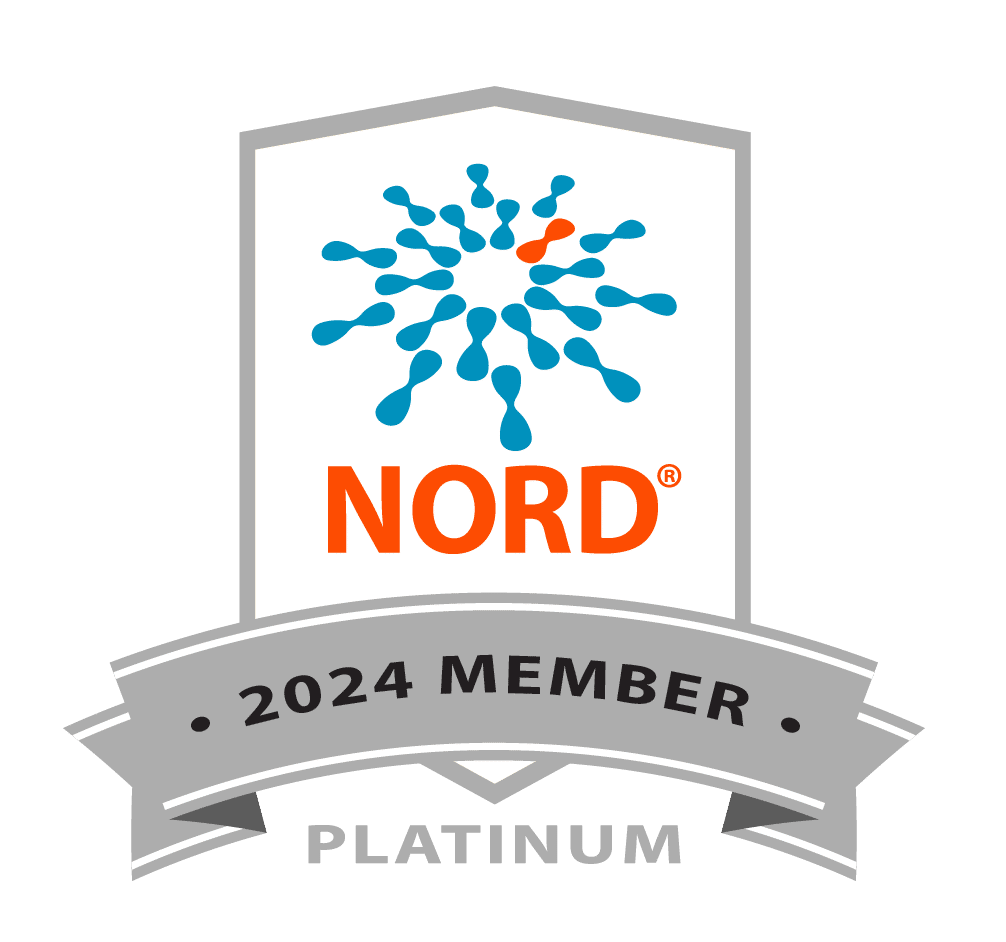Board Bios:
* Diagnosed Alpha-1 Antitrypsin deficient
+ Diagnosed family member
Executive Committee

Jon Hagstrom spent over 20 years working in investment banking and management consulting. He was diagnosed as a ZZ Alpha in 2008, after noticing increasing shortness of breath. The course of his disease was quite aggressive, cutting his career short in his early 40s. He received a bilateral lung transplant at Duke University Medical Center in 2016.
Jon serves in a variety of roles for the Foundation, spanning all aspects of our mission. He has a keen interest in research and therapeutic development, serving as a patient representative on the Grant Advisory Committee, the Therapeutic Development Network Steering Committee, the Alpha-1 Research Registry Steering Committee, and the Alpha-1 Biomarker Consortium. He is passionate about patient support, serving as the Support Group Leader for NY/NJ, an Alpha-1 Global Advisory Committee member, and a Peer Guide for Alphas facing lung transplant. He is a fierce advocate for fellow Alphas, actively lobbying Congress for better care, championing patient interests to the FDA, and promoting early detection.
He has been a member of the Investment and Development Committees since 2019, elected Board Treasurer and Executive Committee member in 2021, and Board Chair in 2022.
Jon is an avid classical pianist and resides in Dobbs Ferry, New York, with his teenage son.
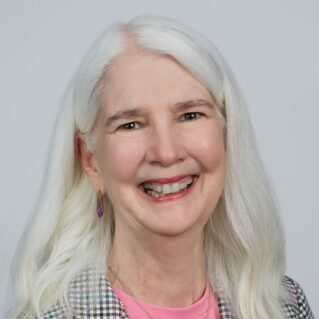
Peg Iverson was diagnosed with Alpha-1 in 1974 at the same time as her mother received her Alpha-1 diagnosis. She participated in the first National Institutes of Health Alpha-1 Study in 1985. She retired early, after a career in information technology as an administrator where she supported servers, routers, switches, software applications and websites. She began working as an AlphaNet Coordinator in 2011 and serves currently as an AlphaNet Program Manager.
She is a past Iowa Support Group Leader, attends the regular Iowa support group meetings and chairs an Alpha-1 Foundation fundraiser called “Iowa Alpha-1 Get the Scoop/Walk” to help fund the cure. She serves on the Foundation’s Educational Materials Working Group, participates in Alpha-1 advocacy efforts and volunteers to speak about Alpha-1 locally.
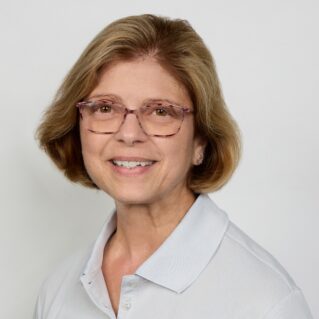
Catherine began serving the Alpha-1 community in 2019 when she became an Alpha-1 Support Group Leader in Southwest Florida. She brings several years of nonprofit consulting, executive leadership, and legal experience to the Alpha-1 Foundation Board of Directors. She was diagnosed as a ZZ Alpha in January 2014. Her symptoms manifested as post-radiation lung disease after breast cancer radiation in 2008. Other family members also carry the Alpha-1 genetic defect.
Catherine is a licensed attorney with prior experience working for medical device manufacturer Philips, involving FDA and HIPPA compliance as it relates to research, testing, manufacturing, and international sales compliance for the global import and export of CT, MRI, Nuclear Imaging, and other imaging devices. She also acted as an international corporate attorney familiar with legal issues associated with a large international manufacturer of construction surfacing materials, managing all global legal matters and legal staff as General Counsel for a $2 billion division of a public corporation with 14 factories in North America, Europe, and Asia. Additionally, she served as the Executive Director of a performing arts nonprofit, with responsibility for all business administration, budgeting, development, fundraising, & performance management. Rounding out her professional experience is ten years of banking experience as a federal regulator for the US Treasury Department, and as a commercial lender.
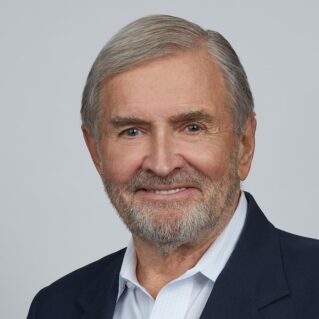
Ken Irvine’s life pursuit continues to be using his Wall Street expertise to help find a cure for Alpha–1, which his late wife, Bettina, was diagnosed with some 20 years ago. She received the best of care, a double lung transplant and enjoyed many years of additional life. In the Alpha–1 community she was an icon, known as the “Iron Lady”. She was Chair of the Alpha–1 Association and an Association director for many years. Her legacy was creating national awareness of Alpha–1, and supporting early genetic testing and investment in cutting edge technology from stem cells to genomics. Mr. Irvine will always have skin in the game with three sons and three beautiful granddaughters. During Mr. Irvine’s prior years of leadership as Vice Chair and a board member of the Alpha–1 Foundation (2005–15), the Foundation pursued a $71-million 20-year basic research program. Also, during this 20-year period, the life expectancy of Alphas enrolled in AlphaNet’s management program increased by 50% because of better treatments. Now the focus is quality of life and finding a cure.
Irvine is a founding board member of The Alpha–1 Project (TAP), a value-added co-investor with biotech to accelerate finding a cure for Alpha–1. This venture philanthropy initiative enables the Foundation to harvest the investment it has made in basic research by partnering with biotech companies to drive forward early stage drug development by de-risking the process. Some 10 partnerships have been established and almost all are or shortly will be in clinical trials. He has been immersed in genomics for the last two decades attending numerous workshops, seminars, conferences. In 2018, he also attended courses at Harvard in “genomics and drug discovery” and in ”precision medicine”. It is a very exciting time as the Alpha–1 community is at the tipping point in genomic medicine. Irvine’s contribution to this innovative approach draws upon his career of pioneering new finance techniques such as derivatives, international Yen placements, securitizations and story bond private placements. His Wall Street career included Bank of Nova Scotia, Chase and other investment banks. He has an MBA from Harvard Business School and an BA from University of Michigan. He is a Chartered Financial Analyst, providing extensive experience in portfolio management as a member of the Foundation’s Investment Committee. As a member of the Foundation’s Development Committee, he hosts the annual Bettina Irvine Invitational Classic at the Greenwich Country Club, which has raised more than $500,000 over the past several years to help fund Alpha–1 research. His legacy will be working to discover cures for Alpha–1 which will benefit his sons, his grandchildren and potentially millions of others as these discoveries may have broad applications.
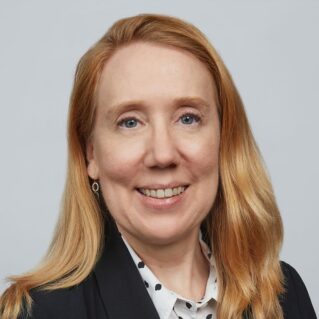
Dr. Clark is an Associate Professor of Medicine at the University of Florida where she serves as the GI Fellowship training program director. Dr. Clark’s clinical research focuses on metabolic and genetic liver diseases with a focus on Alpha-1 Antitrypsin Deficiency (Alpha-1). She is the principal investigator or co-investigator on several active clinical trials for therapies in AAT liver disease as well as non-alcoholic steatohepatitis. Dr. Clark is part of the Alpha-1 Foundation Clinical Resource Center network and provides care to patients with AATD. In addition, she served on the board of directors for the Alpha-1 Foundation for several years and is a current member of the medical and scientific advisory committee (MASAC). She has been an active member of the American Association for the Study of Liver Disease (AASLD) for many years and currently serves as the chair of the Annual Education Committee and a member of the Scientific Programing Committee.
Members
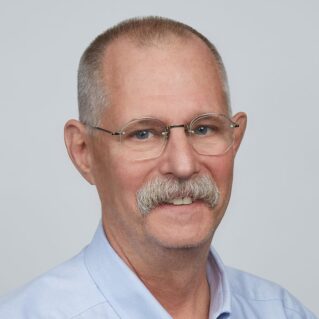
Dr. Brantly is a professor of medicine, molecular genetics, and microbiology at the University of Florida, Department of Medicine, Division of Pulmonary, Critical Care and Sleep Medicine. He also serves as the associate director of the University of Florida’s Clinical Research Center and as director of the Alpha-1 Research Program. The Alpha-1 Foundation’s Alpha-1 Coded Testing (ACT) study and DNA and Tissue are also operated under the direction of Dr. Brantly at the University of Florida.
He has been active in researching Alpha-1 for over 20 years and has worked with the Alpha-1 Foundation to increase national awareness about the disease and its effects on deficient individuals. Dr. Brantly has been influential in expanding the State of Florida detection program, as well as the nationwide screening programs.
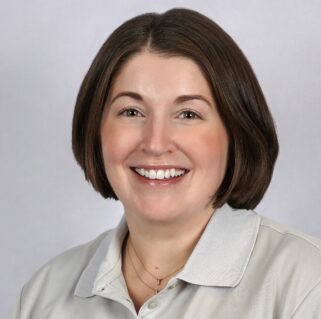
Erin Carr is a mother and advocate who understands the daily struggles individuals and families impacted by Alpha-1 face. Born out of personal experience and unwavering love for her children Jack and Tess, her journey took a profound turn when Tess was diagnosed with Alpha-1 as an infant. This pivotal moment ignited her passion for advocacy and drove her to become deeply involved in the Alpha-1 community. At the core of Erin’s advocacy is a simple yet powerful belief in the importance of compassion, resilience, and determination. She firmly believes that by coming together as a community, we can overcome any obstacle and create a brighter future for those affected by Alpha-1. Whether organizing support group meetings, participating in awareness campaigns, or providing guidance and support to newly diagnosed families, she remains steadfast in her commitment to making a difference.
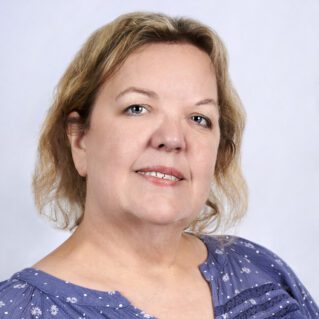
Jen Jopp has spent over 30 years working in healthcare leadership roles. She was diagnosed as a ZZ Alpha in 2005. Her parents both died in their 50’s with lung issues without a correct diagnosis. She was the first one in her family to be properly diagnosed and felt devastated learning her parents never knew their diagnosis and didn’t have the ability to receive the appropriate care. After her diagnosis, she attended her first educational day locally in Minnesota sponsored by Alpha 1 Association. She was amazed at the educational components and various support opportunities offered to Alpha’s and decided to get involved helping other Alpha’s by being a voice for them.
Jen served as a director of the Alpha-1 Association (2013) and then continued as a director of the Alpha-1 Foundation (2014-2022) during the merger of the two entities. She was elected Board Secretary and Executive Committee member in 2018. She rolled off the board in 2022. She was elected back on as a director of the A1F in 2023.
She continues to serve as a member of the Alpha-1 Global Advisory Committee and Community Engagement Advisory Committee member, (also past chair of the CEAC), past Development Committee member and Chair of the Audit and Finance Committee. Has attended Medical and Scientific Advisory Council meetings, Scientific and Research meetings.
She is a support group co-leader in MN, has advocated and lobbied locally and at the Congressional level, supported patient initiatives at the FDA. Supported various fund-raising events. Jen has personally participated in research studies dedicated to better therapeutics, quality of life and pathways towards a cure.
Her goal continues to be the voice and support initiatives to find a cure, better therapeutics and providing programs and services for Alpha’s.
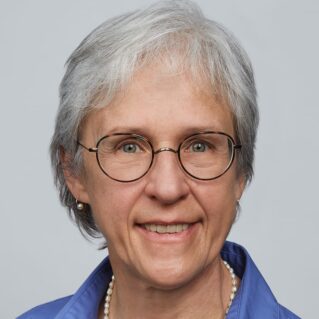
Ann R. Knebel, PhD, RN, FAAN, received her Baccalaureate Degree in Nursing in 1981 and a Master’s of Nursing Science in 1985 from the University of Evansville, Indiana. She earned her PhD in Nursing Science at the University of California, San Francisco. She is a Fellow of the American Academy of Nursing and has served on the Respiratory Nursing Society Board of Directors, American Association of Critical Care Nurses National Study Group on Weaning from Mechanical Ventilation, and Medical and Scientific Advisory Committee of the Alpha-1 Foundation. She served as the deputy director for the Office of Preparedness Planning, Office of the Assistant Secretary for Preparedness and Response (ASPR) and as an NINR program director in the Office of Extramural Programs and as a program analyst in the NINR Office of Science Policy and Public Liaison. Knebel has received numerous awards and special honors and in 2008 she was one of the first recipients of the Hubert H. Humphrey Award for Service to America. The American Thoracic Society has twice awarded her the Marilyn Hansen Meritorious Nursing Research Award.
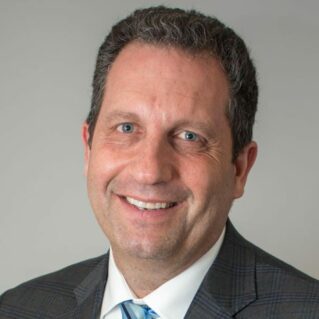
Darrell N. Kotton, MD is the founding Director of the Boston Medical Center/Boston University Center for Regenerative Medicine (CReM) and oversees program development while coordinating the efforts of seven physically-contiguous laboratories in their efforts to understand basic reprogramming mechanisms as well as approaches to the directed differentiation of pluripotent stem cells, following lessons from developmental biology to derive a variety of cell lineages for basic studies and disease models. Dr. Darrell Kotton’s laboratory specializes in stem cell biology with a focus on applying stem cells to model and understand lung development and disease. He has trained graduate students and post-doctoral fellows who have gone on to become faculty members in academic medicine, laboratory PIs, and industry scientists. In his role as an educator, he serves as the PI of the Boston University CTSI’s TL1 training grant in regenerative medicine. Dr. Kotton’s laboratory research has focused primarily on applying mouse and human pluripotent stem cells to investigate the developmental biology of endoderm and the biology of lung injury and repair. His group has developed reprogramming methods, endodermal differentiation protocols for pluripotent stem cells, and gene transfer methods to modulate stem cells or various resident lung cells for durable in vitro and in vivo gene expression. Most recently his laboratory has developed new approaches for generating lung and thyroid lineages from mouse or human pluripotent stem cells in vitro.
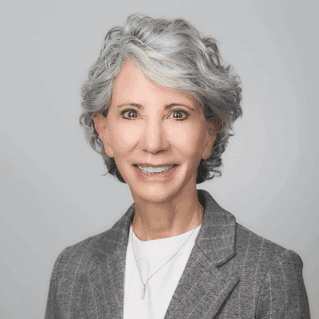
Tammy McGuinness is a retired Certified Public Accountant who holds a Master of Science in Taxation and brings 38 years of experience in public accounting and industry to the Alpha-1 Foundation Board of Directors. Her career journey includes a significant period in industry where she served as the Vice President of Tax and Risk Management, followed by decades in public accounting as a tax partner with two of the Big Four global accounting firms.
During her tenure, Tammy held significant leadership responsibilities, including serving as the tax Business Unit Partner-in-Charge for the Pacific Southwest for KPMG. She also served as a global lead tax partner, assisting a number of large multinational accounts with mergers, acquisitions, business structure planning, tax accounting, and tax planning. She provided tax services to a wide variety of businesses, including service industries, biopharmaceutical, online travel, manufacturers, media, technology, and energy. She also managed a number of large teams of professionals, ranging from specialty practices to multi-office responsibilities. She retired from KPMG in September 2021.
Beyond her corporate career, Tammy has dedicated her time to multiple boards, including the Los Angeles Chamber of Commerce, YMCA of Los Angeles, and Habitat for Humanity of Los Angeles. She has also worked internationally with WE.org in Kenya and Ecuador, and has twice traveled to Mexico with Habitat for Humanity of Los Angeles to help build houses for local families. Her board service also included AlphaNet Inc., a sister organization to the Alpha-1 Foundation, which provided her with deep insight into the community.
After her brother was diagnosed as a ZZ Alpha, Tammy began researching the condition using information from the Alpha-1 Foundation and officially received her own diagnosis a few weeks later in 2019. This personal connection to the community fuels her passion for the Foundation’s mission, and she leverages her expertise on the Investment and Development Committees. In her free time, she enjoys staying active by hiking, lifting weights, cycling, and playing golf.
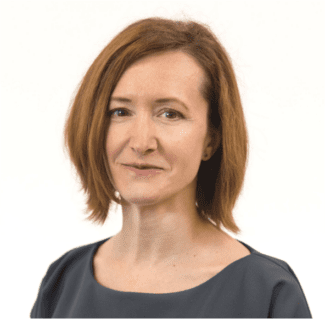
Alice graduated from the University of Leicester and has done postgraduate training via the Universities of Dundee and Birmingham, and Ashridge-Hult business school, completing a PhD focussed on COPD and alpha 1 antitrypsin deficiency (AATD) and postgraduate qualifications in medical education, leadership, and quality improvement (QI). She is now a professor in respiratory medicine at the University of Birmingham and works as a consultant in respiratory medicine at Heartlands and Queen Elizabeth hospitals, where she is lead for COPD and AATD services respectively. In addition, she is a member of the NIHR research prioritisation committee and has past experience on a NICE health technology appraisal committee. She has published widely in COPD and AATD, and has ongoing research projects, mainly clinical trials, and observational clinical studies, in AATD and COPD funded by the NIHR and others.
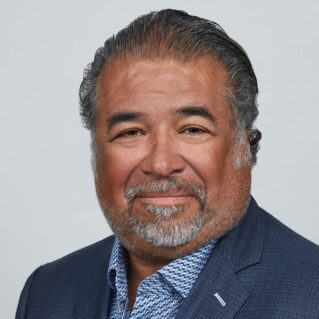
Dr. Zamora is Professor Emeritus of Medicine, Division of Pulmonary Sciences and Critical Care Medicine, at the University of Colorado at Denver School of Medicine, Aurora, Colorado. He was also the Medical Director of Lung Transplantation at the University of Colorado at Denver Health Sciences Center. He received his medical degree from the University of Colorado School of Medicine, and did his internship and residency in Internal Medicine and Pulmonary and Critical Care Fellowship at the University of Colorado Health Sciences Center, Denver. Dr. Zamora has been a member of the American Society of Transplantation Thoracic Committee, a member of the United Network for Organ Sharing Board of Directors, the UNOS Thoracic Committee and Chaired the Lung Allocation Subcommittee and was involved in the development and implementation of the Lung Allocation System. He also served as the Chair of the Foundation’s Transplant Issues Working Group and has been involved for many years with the Foundation’s Education Days, both locally and nationally. He has been an NIH funded researcher, has been the principal investigator of multiple industry sponsored studies, and has been awarded many honors, including most recently the America’s Top Doctors Award in 2017 and the Best Doctors in America Award for 2017.











